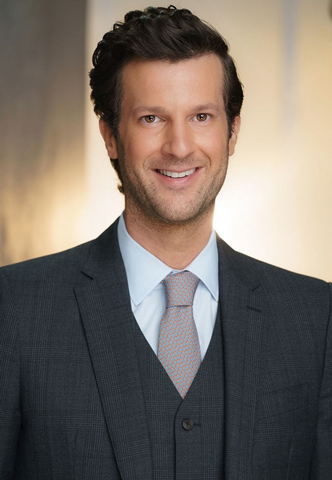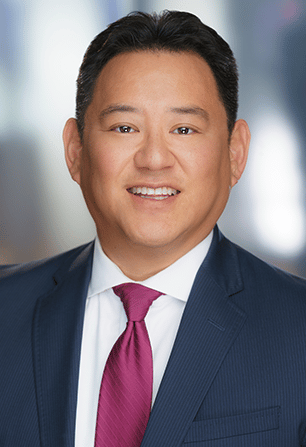A car accident can be a life-altering event, leaving you shaken, confused, and unsure of what steps to take next. Whether you’ve just left the scene or you’re still dealing with the aftermath days later, it’s important to take decisive action to protect your health, your rights, and your future.
This comprehensive guide will walk you through the essential steps you should take after a car accident in California to ensure you’re well-equipped to handle the challenges ahead.
If you or a loved one has suffered injuries in an auto accident, reach out to a skilled California car accident lawyer at Wilshire Law Firm today.
Immediate Actions: Protecting Your Health and Safety

In the hours following a car accident, your actions can significantly impact your physical recovery and legal standing. Take these critical steps to safeguard your well-being and future interests.
Seek Medical Attention Without Delay
Your health is paramount. Even if you feel fine immediately after the accident, some injuries may not immediately appear. Whiplash, internal injuries, and concussions can have delayed symptoms that worsen over time. Don’t wait for pain to set in—seek medical attention immediately.
- Visit the emergency room or your primary care physician as soon as possible
- Document all medical visits, treatments, and prescribed medications
- Follow your doctor’s orders meticulously – this is crucial for your health and any potential legal claims
Remember, your well-being is non-negotiable. Prompt medical care not only ensures your safety but also creates a vital record of your injuries, which will be indispensable if you need to file a claim later.
Report the Accident to Law Enforcement
If you haven’t already done so at the scene, report the accident to the police immediately. In California, you’re required by law to report any accident that results in injury, death, or property damage exceeding $1,000.
- Call the police department’s non-emergency number if you’ve left the scene
- Provide a clear, factual account of what happened
- Request a copy of the police report – this will be a crucial document for insurance claims and potential legal action
A police report serves as an official, unbiased account of the accident, which can be invaluable in establishing fault and supporting your case.
Gathering and Preserving Evidence
Building a strong case starts with meticulous documentation and evidence collection. Your diligence in this phase will prove invaluable in securing the compensation you deserve and protecting your rights throughout the claims process.
Document Everything Related to the Accident
Start collecting and organizing all relevant information as soon as possible.
- Take photographs of your injuries, vehicle damage, and the accident scene (if you’re able to return safely)
- Keep a detailed journal of your symptoms, medical treatments, and how the injuries impact your daily life
- Save all medical bills, repair estimates, and any other accident-related expenses
- Obtain contact information for any witnesses, if you haven’t already
Remember, no detail is too small. What might seem insignificant now could prove crucial later in supporting your claim.
Notify Your Insurance Company
Contact your insurance provider promptly to report the accident. Most policies require notification within a specific timeframe, and failing to do so could jeopardize your coverage.
- Provide a clear, honest account of the accident
- Stick to the facts – avoid speculating or admitting fault
- Ask about your policy’s coverage for medical expenses and vehicle repairs
- Inquire about rental car coverage if your vehicle is undrivable
While cooperating with your insurance company is important, be cautious about providing recorded statements or signing any documents without legal advice.
Protecting Your Legal Rights
In the aftermath of an accident, every action you take can impact your legal standing. By staying vigilant and informed, you’ll safeguard your rights and maximize your chances of a favorable outcome in any potential legal proceedings.
Be Cautious in Your Communications
After an accident, it’s natural to want to discuss what happened. However, it’s crucial to be mindful of what you say and to whom.
- Avoid discussing fault or details of the accident on social media
- Do not provide statements to the other driver’s insurance company without legal counsel
- Be wary of early settlement offers—they may not account for the full extent of your injuries and losses
Remember, anything you say the insurance company will use against you in negotiations or legal proceedings. When in doubt, consult a legal professional before making any statements.
Understand California’s Statute of Limitations
In California, you have a limited time to file a lawsuit for injuries sustained in a car accident. The statute of limitations for personal injury claims is generally two years from the accident date.
- Mark the date of your accident and set reminders well in advance of the two-year mark
- Be aware that claims against government entities may have much shorter deadlines
- Don’t wait until the last minute – building a strong case takes time
While two years may seem like a long time, the legal process can be complex. Starting early ensures you have ample time to gather evidence, negotiate with insurance companies, and, if necessary, prepare for litigation.
Dealing with Insurance Companies
Dealing with insurance claims can be a complex and often frustrating process, but with the right approach, you will secure the compensation you deserve. Understanding the tactics insurers use and knowing your rights will empower you to advocate effectively for your interests.
Navigate Insurance Negotiations with Caution
Insurance companies are businesses, and their primary goal is to minimize payouts. While they may seem helpful, it’s important to approach all interactions with insurance adjusters carefully.
- Don’t accept the first settlement offer – it’s often lower than what you deserve
- Understand the full extent of your injuries and long-term prognosis before settling
- Keep detailed records of all communications with insurance companies
- Consider having a legal professional review any settlement offers before accepting
Remember, you have the right to negotiate. Don’t feel pressured to accept an offer that doesn’t fully compensate you for your injuries and losses.
Understanding Comparative Fault in California
California follows a “pure comparative negligence” rule, which means you can recover damages even if you were partially at fault for the accident. However, your compensation will be reduced by your percentage of fault.
- Be honest about the circumstances of the accident, but don’t volunteer information that could be used to assign you a higher percentage of fault
- Understand that insurance companies may try to increase your percentage of fault to reduce their payout
- Gather evidence that supports your version of events and minimizes your potential fault
If there’s any question about fault in your accident, consulting a legal professional can ensure you’re not unfairly penalized.
Long-Term Considerations
The impact of a car accident extends far beyond the accident itself, affecting various aspects of your life in the weeks, months, and even years to come. By taking a proactive, long-term approach, you will ensure that your recovery and compensation fully address the lasting effects of the accident.
Monitor Your Recovery Process
The full impact of a car accident may not be immediately apparent. Some injuries can have long-lasting effects on your health, career, and quality of life.
- Attend all follow-up medical appointments and therapy sessions
- Keep a detailed record of your recovery progress, setbacks, and ongoing symptoms
- Be aware of potential long-term complications associated with your injuries
- Consider the impact on your ability to work, both now and in the future
Your health and well-being are ongoing concerns. Don’t rush to settle your claim until you have a clear understanding of your long-term prognosis and needs.
Assess the Full Scope of Your Damages
When considering compensation, account for all types of damages you incur:
- Medical expenses (current and future)
- Lost wages/income and potential loss of earning capacity
- Property damage
- Pain and suffering
- Emotional distress
- Loss of enjoyment of life
A comprehensive assessment of your damages ensures that any settlement or legal action fully addresses the impact the accident has had on your life.
When to Seek Legal Representation
You need professional guidance after:
- Severe injuries or long-term disability resulting from the accident
- Disputes over fault or liability
- Denied insurance claims or lowball settlement offers
- Accidents involving commercial vehicles or multiple parties
- Cases where the at-fault driver was uninsured or underinsured
An experienced personal injury attorney can level the playing field, ensuring your rights are protected and you receive fair compensation for your injuries and losses.
Coping with Emotional and Psychological Impact

Car accident claims extend beyond physical injuries and legal proceedings. The emotional and psychological toll can be significant and long-lasting. Addressing these aspects of recovery is crucial for your overall well-being and will contribute to a more complete healing process.
Recognize Common Emotional Responses
- Understand that anxiety, fear, anger, and even guilt are normal reactions
- Be aware of symptoms of post-traumatic stress disorder (PTSD), such as flashbacks or nightmares
- Acknowledge that emotional recovery may take time, just like physical recovery
Seek Professional Support
- Consider talking to a therapist or counselor who specializes in trauma recovery
- Look into support groups for accident survivors to connect with others who understand your experience
- Don’t hesitate to discuss emotional concerns with your doctor, who can provide referrals if needed
Practice Self-Care
- Engage in relaxation techniques such as deep breathing, meditation, or yoga
- Maintain a healthy lifestyle with proper nutrition, regular exercise, and adequate sleep
- Gradually return to your normal routine and activities as you feel comfortable
Communicate with Loved Ones
- Share your feelings and experiences with trusted friends and family members
- Allow others to support you and help with daily tasks if needed
- Be open about your needs and limitations during the recovery process
Regain Confidence in Driving
- Take it slow when returning to driving, starting with short trips in familiar areas
- Consider taking a defensive driving course to boost your skills and confidence
- If anxiety persists, work with a mental health professional on exposure therapy techniques
Remember, emotional recovery is a vital component of your overall healing process. By addressing both your physical and emotional needs, you will achieve a more complete recovery and regain your quality of life more quickly. Don’t hesitate to seek help—there’s strength in acknowledging and addressing your emotional well-being after a traumatic event like a car accident.
Taking the Next Step: Your Path to Recovery and Justice
Dealing with a car accident claim can be overwhelming, but you don’t have to face it alone. At Wilshire Law Firm, we understand the challenges you’re dealing with, and we’re here to help. Our powerhouse team of legal professionals has a proven track record of securing exceptional results for our clients, with over $1 billion in compensation recovered.
We pride ourselves on being more than just lawyers—we’re your advocates, your support system, and your partners in justice. Our client-first approach means we’ll fight relentlessly for your rights, ensuring you receive the full compensation you deserve. With Wilshire Law Firm, you’re not just getting legal representation; you’re gaining a dedicated ally in your journey to recovery.
Don’t let uncertainty about your future weigh you down. Contact the experienced California personal injury lawyers from Wilshire Law Firm today at (213) 335-2402 or through our online form for a free, no-obligation consultation. Remember, with Wilshire Law Firm, you can confidently “Win With Wilshire” and “Get Justice, Get Paid.”











